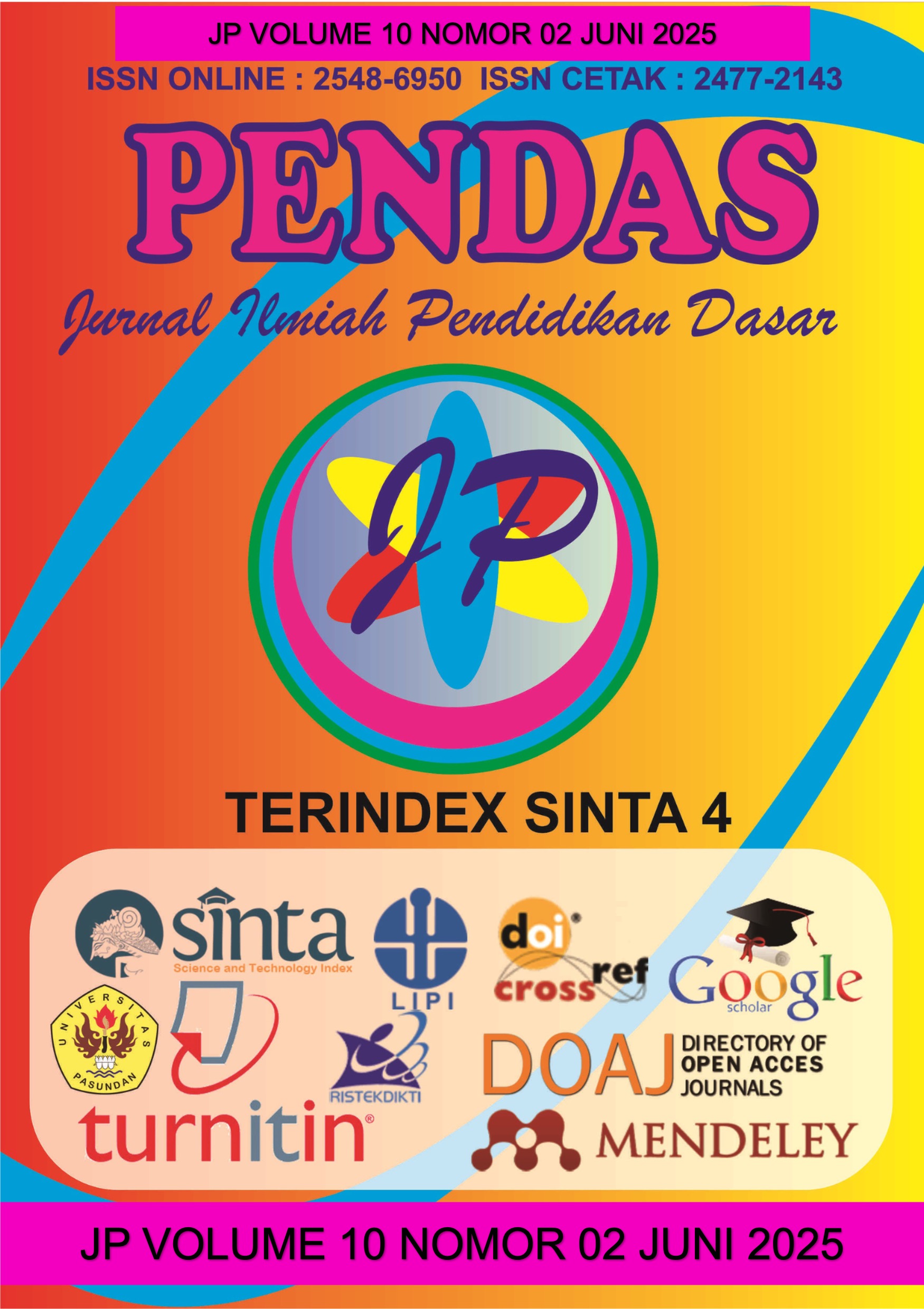PEMBELAJARAN ANAK BERKEBUTUHAN KHUSUS (ABK) DI SEKOLAH INKLUSI SDN 131 KOTA JAMBI
DOI:
https://doi.org/10.23969/jp.v10i02.25126Keywords:
inclusive education, children with special needs, elementary schoolAbstract
Education is a fundamental right for every individual without exception, including children with special needs (CWSN). Therefore, the education system must ensure equal access and services for all students. The concept of inclusive education emerges as a response to this need, emphasizing the importance of adapting learning processes to align with each child's characteristics and needs. Each CWSN has a unique learning style, thus requiring tailored teaching strategies to ensure they receive equal educational rights. This study aims to identify and describe the teaching practices for CWSN at the inclusive school SDN 131 Kota Jambi. The research employs a qualitative phenomenological approach, with data collected through observation, interviews, and documentation. The findings reveal that the lecture method remains the primary approach used by teachers. In lower grades (Grade II), teachers actively collaborate with Special Education Assistants (GPK) to provide additional explanations directly to CWSN until the material is understood. In contrast, in higher grades, material repetition is conducted only once or twice, as some CWSN are able to follow the lessons independently. One student even demonstrated significant progress to the point of no longer needing assistance from a GPK. These findings suggest that adapting teaching strategies and providing support through GPK are crucial for the learning development of CWSN, and over time, they can achieve independence in the learning process.
Downloads
References
Kustawan, D. (2012). Pendidikan Inklusif dan Upaya Implementasinya: Pedoman Teknis Penyelenggaraan PERMENDIKNAS No. 70, Tahun 2009. Jakarta Timur: PT Luxima Metro Media.
Mayudana, I. K. Y., & Sukendra, I. K. (2020). Analisis kebijakan penyederhanaan RPP: Surat edaran menteri pendidikan dan kebudayaan nomor 14 tahun 2019. Indonesian Journal of Educational Development, 1(1), 61-68.
Nursiyana, Oky. (2016). Pelaksanaan Pengajaran Remedial Anak Lamban Belajar (Slow Learner) di Kelas III Sekolah Dasar Negeri 1 Krakal Kecamatan Alian Kabupaten Kebumen. Skripsi. Fakultas Ilmu Pendidikan. Universitas Negeri Yogyakarta:Yogyakarta.
Rasmitadila. (2020). Penyelenggaraan Pendidikan Inklusif. Jakarta: Rajagrafindo Persada
Shoimah, R. N. (2020). Penggunaan Media Pembelajaran Kongkrit Untuk Meningkatkan Aktivitas Belajar dan Pemahaman Konsep Pecahan Mata Pelajaran Matematika Siswa Kelas III MI Ma’arif NU Sukodadi-Lamongan. MIDA: Jurnal Pendidikan Dasar Islam, 3(1), 1-18.
Sigit, Laksana Dwi. (2016). Pentingnya Media Pembelajaran Bagi Anak Berkebutuhan Khusus. Inclusive: Journal of Special Education, 2(01), 57-69
Sukmadinata, Nana Syaodih. (2017). Metode Penelitian Pendidikan, Cet.12. Bandung: Remaja Rosdakarya
Sumiyatun. (2015). Peningkatan Hasil Belajar Pengukuran Anak Berkebutuhan Khusus (ABK) Ringan Melalui Pembelajaran Kooperatif Setting Inklusif. PINUS: Jurnal Penelitian Inovasi Pembelajaran, 1(1), 1-96.
Sunarya, E. (2018). Motivasi Belajar Siswa Berkebutuhan Khusus Tunadaksa di Yayasan Pembinaan Anak Cacat (YPAC) Palembang. Skripsi. Fakultas Keguruan dan Ilmu Pendidikan. Universitas Sriwijaya: Palembang
Suparti, S. (2014). Penggunaan Metode Penugasan atau Resitasi Untuk Meningkatkan Hasil Belajar Siswa Kelas III dalam Memahami Konsep Mengenal Pecahan Sederhana. PEDAGOGIA: Jurnal Pendidikan, 3(1), 54- 66
Yuliana, N. D., & Budianti, Y. (2015). Pengaruh Penggunaan Media Konkret Terhadap Hasil Belajar Siswa pada Mata Pelajaran Matematika Kelas II Sekolah Dasar Negeri Babelan Kota 06 Kecamatan Babelan Kabupaten Bekasi. PEDAGOGIK: Jurnal Pendidikan Sekolah Dasar, 3(1), 34-40.
Downloads
Published
Issue
Section
License
Copyright (c) 2025 Pendas : Jurnal Ilmiah Pendidikan Dasar

This work is licensed under a Creative Commons Attribution 4.0 International License.














































